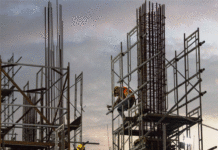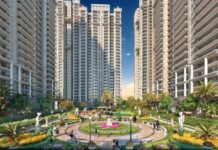Sachin Patel, CMD, Swaminarayan Group
The rise of integrated townships is rapidly altering the country’s real estate landscape. As cities become more densely populated, the potential for future development shrinks, and integrated townships emerge as a potential solution. It is a collection of residential and commercial properties that provides consumers with a complete city experience by meeting people’s basic needs, such as education, health care, and entertainment options, in a safe, holistic, and environmentally friendly setting.
Township projects are a well-balanced mix of residential and commercial spaces expected to provide residents with social infrastructure and additional amenities. These projects should be self-sustaining, with well-developed power, road, water, drainage, and sewage infrastructure. Many states consider integrated townships as a solution to city congestion and planned expansion due to the scarcity of land and resources forcing metro cities to expand.
Sustainable Townships
Sustainable townships are well-planned, self-contained urban areas prioritising environmental, social, and economic sustainability. They promote a balanced and harmonious lifestyle by incorporating green spaces, efficient infrastructure, renewable energy sources, and waste management systems. These townships seek to reduce carbon footprints, improve residents’ quality of life, and improve overall well-being.
Rapid urbanisation in India has presented both challenges and opportunities for sustainable urban development in recent years. Townships shape the urban landscape significantly, providing a unique opportunity to implement innovative urban design and infrastructure development approaches. As India strives to achieve its sustainable development goals, understanding emerging trends in urban planning, addressing challenges, and capitalising on opportunities for creating environmentally friendly and resilient communities becomes critical.
Growing Innovation in Township Planning
Mixed-Use Developments: Mixed-use developments that combine residential, commercial, and recreational spaces are prominent in sustainable townships. This strategy reduces the need for long commutes, encourages walkability, and ensures efficient land use.
Green and Smart Infrastructure: Green and smart infrastructure are becoming increasingly popular in sustainable urban planning. These measures conserve resources, reduce environmental impact, and range from eco-friendly buildings with energy-efficient designs to smart grids and water management systems.
Transit-Oriented Development (TOD): TOD focuses on developing public transportation infrastructure and amenities in the vicinity of transportation hubs. TOD reduces traffic congestion and air pollution by encouraging the use of public transportation and reducing reliance on private vehicles.
Low-Carbon Solutions: To reduce greenhouse gas emissions and combat climate change, sustainable townships are implementing low-carbon solutions such as renewable energy sources, solar power installations, and waste-to-energy plants.
Townships Enable Abundant Amenities Closer to Home
Providing a plethora of social amenities boosts the attractiveness and liveability of any new township development. On the urban planning front, the consolidation of land for civic use allows flexibility in the final construction of these social amenities. These social amenities should be distributed throughout the transportation network for easy access to public areas and residences. Townships can also provide clubhouses with space for social functions and additional recreation options.
Enrich Lives Through Design
The design remains a meaningful way to shape the township’s living experience to reflect 21st-century eco-planning sensibilities. The design should increase the township’s biodiversity and promote outdoor recreation through natural hotspots strengthened by community development. The mixed density of the neighbourhood allows for spacious streetscapes, dedicated open spaces, and green networks that also function as attractive transportation networks. These open spaces can also be transformed into different environments, such as parks, meditation zones, golf courses, and urban beaches, to enrich the experiences and types of urban activities.
Design a Holistic And Healthy Lifestyle
Townships provide a distinct lifestyle for their residents in addition to world-class residences. A healthy lifestyle is encouraged by the abundance of greenery, picturesque gardens, running tracks, swimming pools, tennis courts, and other township amenities. Most importantly, open spaces in townships allow people to recharge their batteries when needed. Having these resources nearby encourages people to be more active and devoted to their well-being. Townships also provide contemporary, fully furnished apartments. This demonstrates that style and comfort can coexist.
Many townships also have excellent security systems, hospitals, schools, and shopping malls, all of which improve the quality of life for their residents. Some townships also have public transportation systems that take residents to the nearest bus or train station, making their daily commute easier. Townships are unrivalled and sought-after among homebuyers due to their proximity to these modern amenities.
Advanced Security
Township projects are usually outfitted with advanced control and automation systems, providing all residents with the most secure residential living conditions. CCTV cameras, 24*7 monitoring, and video surveillance systems are among the security systems.
A Sense Of Community
Many families settle in residential townships and form close-knit communities that foster a sense of belonging. Residential townships provide a strong sense of community and are viable rental options for joint families, nuclear families, and young couples.
Townships offer Work-life balance
The plans for integrated townships revolve around the location’s social and infrastructure development. All integrated township projects benefit from the industrial and commercial development surrounding IT sectors and major corporations. The first advantage to consider is that your workplace is within walking distance of your home, with the added benefit of hospitals, schools, colleges, restaurants, supermarkets, shops, and other nearby facilities. When you save time travelling between work and home, you have more time for other enjoyable life activities.
The Solution to Urban Challenges
Amid India’s blistering pace of urbanisation, most cities have depleted centrally located landscapes. As a result, expanding to the outskirts is the only viable option for accommodating the ever-increasing population. However, such outlying areas have poor physical and social infrastructure. Thus, developing integrated townships where the onus of physical and social infrastructure development falls primarily on developers could alleviate the infrastructure bottleneck in such localities. It could help to stretch the city across its peripheries and decongest central locations by attracting people to such townships. Because of the factors mentioned above, there has been a surge in interest in integrated townships among all major real estate players, including buyers, urban planners, and developers.
Building Sustainable Townships is the Need of the Hour
Given the consistently increasing demand from homebuyers and the growing city challenges such as diligent traffic, blockage, and contamination, more industry players are creating integrated living communities. Coordinated townships offer advantages such as green and open spaces, cleaner environments, and a contamination-free environment.
Modern Sustainable townships are the future of affordable and luxury-driven urban development in India and beyond. As the country grapples with the challenges of rapid urbanisation, emerging trends in urban planning offer hope for creating environmentally friendly, inclusive, and resilient communities. While infrastructure investment and stakeholder engagement remain critical, the Indian government’s commitment to sustainable urban development, as reflected in budget allocations, is a positive sign. India can move towards a greener and more sustainable future by embracing innovative urban design and infrastructure development approaches.




















